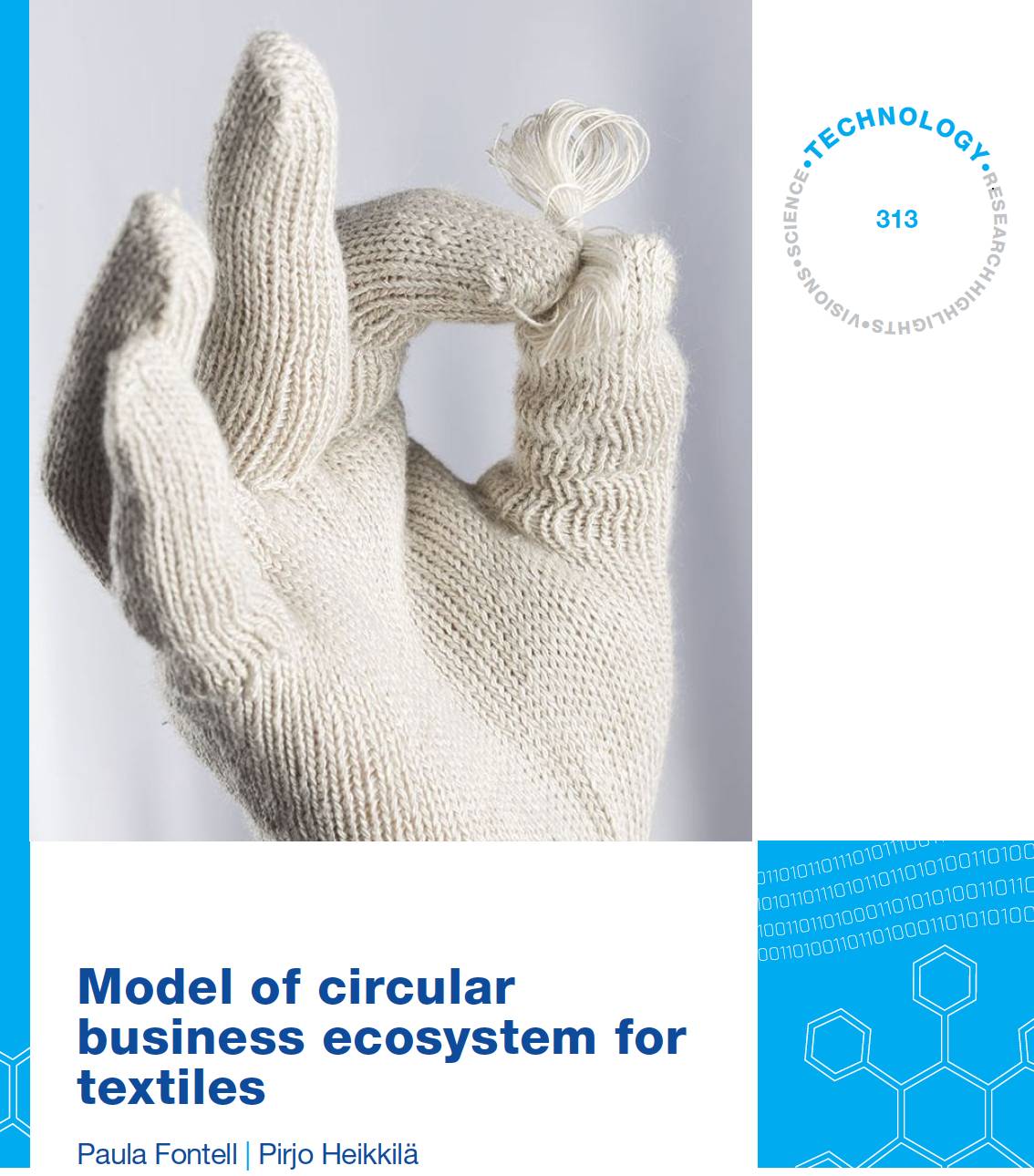
The Relooping Fashion Initiative aimed at piloting and modelling the circular business ecosystem for textiles. This report covers this business ecosystem modelling work and introduces the project team’s crystallized vision of a higher-level system that enables the textiles industry to operate according to the basic principles of a circular economy. The aim is not to provide a detailed view of all possible material flows, actors, or interfaces between the different processes, such as reverse logistics, data, energy, water, process substances or side streams. Rather, the focus is on explaining the principles of a circular economy in the context of textiles, and drawing a picture of the key material flows and types of actors along the value cycles from end-user back to end-user. The overall goal is to maintain the value of materials as high as possible, with minimum environmental impact.
The different circular business models for textiles are introduced along the value cycles. The report covers 1) repair and maintenance, 2) re-use as product, 3) re-use as material, and 4) recycling-related activities, and business models for post-consumer/user textiles along the entire value chain. All these processes need to work seamlessly together for the circular business ecosystem to function effectively.
Some parts of the value chain, such as textiles producing & design and retail, are already well established, while others, such as effective textile collection and sorting for non-reusable poor-quality textiles, are currently still missing at an industrial scale.
To solve the global textile waste problem, and to be able to replace some of the virgin materials such as cotton with recycled textile materials, new recycling technologies are at the centre of attention. This report also gives an overview of the key emerging technologies for textile recycling. Furthermore, this report discusses the topic of shared value creation in the circular economy context, since one of the goals for the Relooping Fashion Initiative was to create a circular business ecosystem, which creates shared value for all parties along the value chain.


